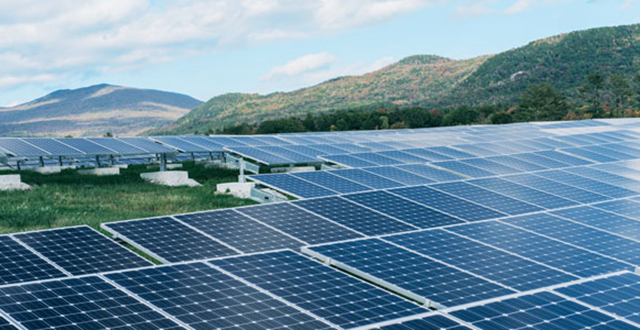About solar power
Sunlight produces two types of energy, solar thermal energy, which converts sunlight directly into heat, and photovoltaic solar energy, which converts sunlight directly into electricity. To produce these two types of solar power, high temperature is less important than the level of sunlight. Not only is solar energy reliable thanks to its stable, predictable source — but also a low-carbon method of energy production, as it requires no moving parts and no fuel.
Solar air preheating, an energy efficiency program
Énergir has offered its customers a solar air preheating program since 2003. The program provides customers with a grant to install thermal solar collectors used to preheat the air supply to a ventilation system operating on natural gas. Customers participating in the program have prevented the emission of more than 14,500 tonnes of greenhouse gas between 2004 and 2024.

Imagining energy differently
We believe that the future of energy lies in diversity.
That’s why Énergir (directly and through its subsidiaries) is actively involved in developing renewable natural gas and liquefied and compressed natural gas, as well as solar, wind and hydroelectric projects.

